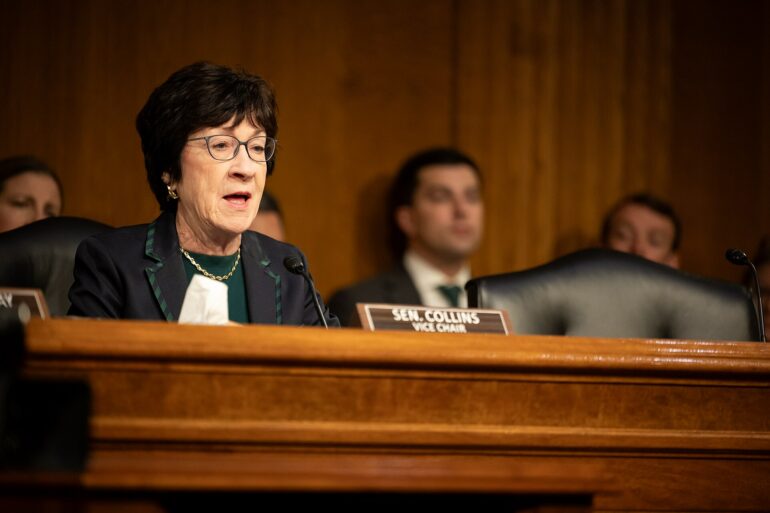Senator Susan Collins of Maine, long regarded as one of the Senate’s most diligent appropriators, now reportedly finds herself at the center of a constitutional standoff between Congress and the executive branch — a clash that reflects the Trump administration’s unapologetic push to reassert presidential control over the federal budget.
Collins, a centrist Republican and chair of the powerful Senate Appropriations Committee, has spent decades mastering the arcane mechanics of federal spending.
Her efforts have brought billions to Maine, funding everything from infrastructure to low-income heating assistance.
But today, her quiet, workhorse style is colliding with the unapologetically disruptive strategy of Office of Management and Budget (OMB) Director Russ Vought, a key figure in the Trump administration’s campaign to rein in the federal Leviathan.
“The White House’s budget office is really pushing the limits of what the executive can do without the consent of the legislative branch,” Collins warned in an interview, signaling alarm over the administration’s strategy of holding back congressionally appropriated funds.
Vought, an architect of the Project 2025 plan to shrink government and return power to the presidency, has taken a firm stance: the executive branch, he argues, not only has the right but the obligation to question and, when necessary, delay spending that doesn’t align with the president’s agenda.
“We have the ability and the executive tools to fund less than what Congress appropriated,” Vought said recently, framing the effort as part of a broader “paradigm shift.”
This approach, while alarming to traditional institutionalists like Collins, has found strong support among many Republicans eager to break Washington’s entrenched spending habits. “This is the kind of thing that’s necessary for us to change the paradigm of the way the town has worked,” Vought said.
Yet Collins has fought back — and not without success. She’s helped secure the release of $7 billion for public schools, preserved funding for Maine’s lobster industry, and reversed freezes on heating aid and higher education funds for her state.
Most notably, she led the charge to protect $400 million for the Pepfar global AIDS program, a rare bipartisan achievement.
Still, she is often fighting an uphill battle. During a recent rescissions vote, only she and Sen. Lisa Murkowski (R-Alaska) opposed the administration’s proposed $9 billion in cuts, even as others voiced concern about the White House bypassing congressional authority.
Sen. Roger Wicker (R-Miss.) warned that the lack of detail in Vought’s proposals “was approaching a disregard for the constitutional responsibilities of the legislative branch,” but ultimately voted yes.
The administration has repeatedly withheld funds — from NASA to the NIH — sometimes with little explanation. Collins, joined by Democrats, has called these delays illegal. A federal judge recently agreed, ruling that OMB’s actions had violated federal law.
Still, Vought remains unfazed. “Everything we do is legal,” he insisted, even as the Government Accountability Office investigates more than 50 funding freezes.
The administration, he says, is simply ensuring that federal dollars are aligned with the will of the president — not with unchecked congressional spending.
The result is a rare public rift between a Republican Senate veteran and a White House determined to assert executive authority. As the September deadline to finalize federal spending looms, Collins’s battle to safeguard congressional power — and her state’s funding — is far from over.
[READ MORE: Trump CIA Head Reveals Brennan, Comey and Hillary May Soon Face Indictments]



